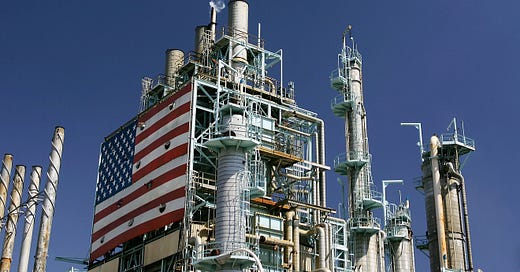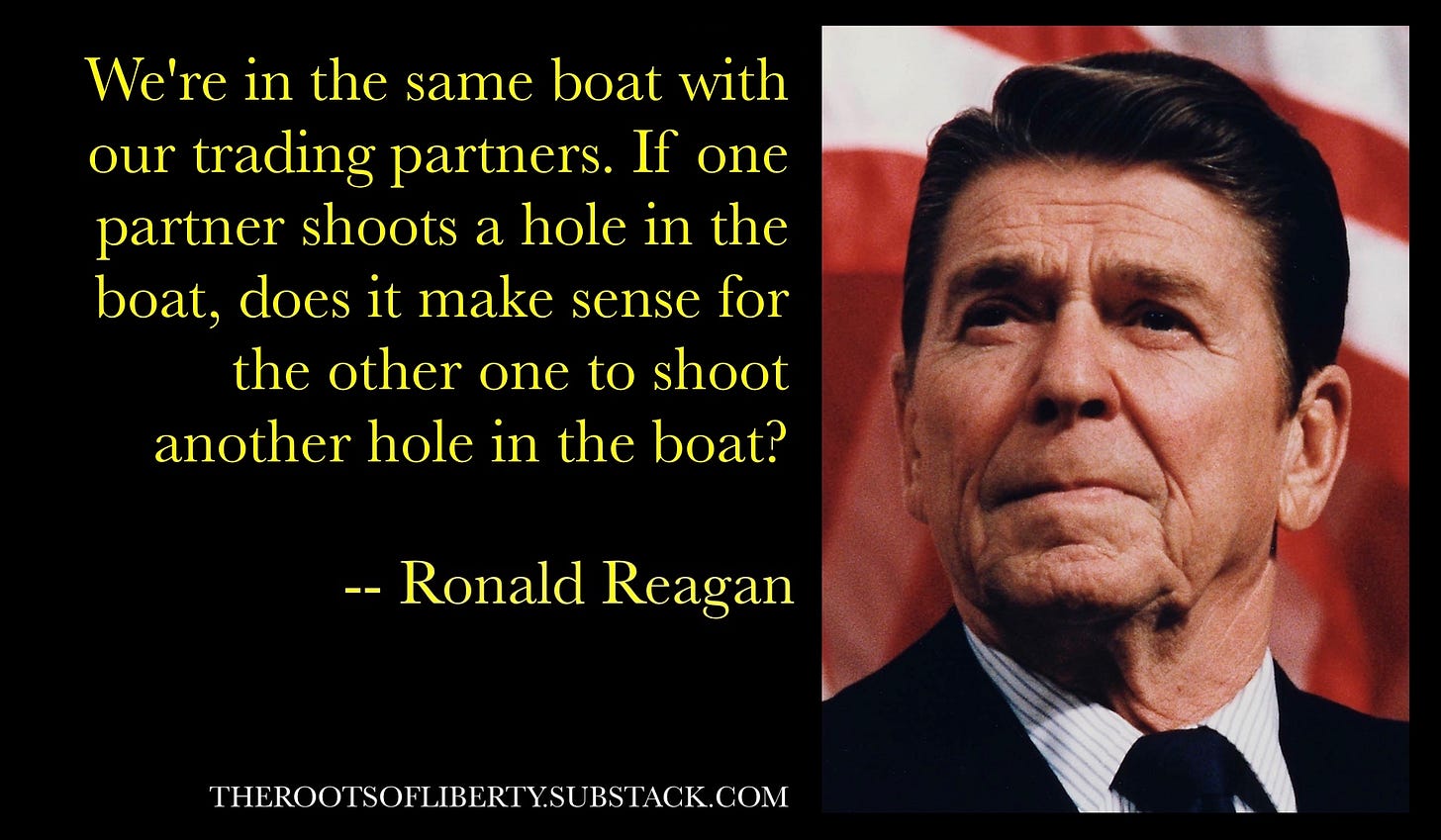Much as I try to resist falling into the "one issue at a time" behavior that is the norm in politics when it comes to my blog posting, everyone everywhere is talking tariffs, and tariffs are everything everywhere all at once.
So, once more unto the breach!
People are claiming that:
Tariffs are about getting other nations to lower their tariffs.
Tariffs are about revenue for the Federal government.
Tariffs are about inducing nations to rein in migrants and drug smuggling.
Tariffs are about reducing the trade deficit.
Tariffs are about improving economic security.
Tariffs are about punishing other nations for soaking American exporters via taxes.
Tariffs are about inducing companies to move manufacturing back to the US.
And more. So much more.
Like snake oil, tariffs can cure whatever ails ya. Even things that aren’t actually problems. Even though these claims cannot all be true.
I've flogged that horse already, so today is about the right way to accomplish the last item - and get some positive movement for the rest.
It's simple. Instead of making things more expensive, make them cheaper.
Federal regulations cost the US economy over $3 trillion a year. Economic regulations, regulatory burdens, compliance costs, and the opportunity costs all those create put a massive wet blanket over our nation's ability to produce goods and services. Tack on the ripple costs of protectionism and favoritism for "protected" industries (see: Big Sugar), and it's no surprise that making stuff here can be more expensive than making it outside America's borders.
Absent major reforms to this burden, "re-shoring" manufacturing via tariffs serves only to make everything even more expensive for Americans.
It goes beyond money. Time, that most precious commodity of all, is wasted in vast quantities by both excessive regulation and bureaucratic sclerosis. This drags on productivity and nimbleness, thus dragging on economic growth and innovation.
The answer to getting more manufacturing done inside our borders lies in making "inside our borders" more attractive, not in making "outside our borders" less attractive. Streamlining our economy transcends such disputes as whether trade deficits even matter, who is punished most by tariffs, or whether certain industries are so strategically important they need to be "domesticated."
The only people who won't like deregulation are the ones who benefit from it. Bureaucrats who like wielding (often petty and arbitrary) veto power. Companies and industries that benefit from protectionism and favoritism. Politicians who trade influence for votes and donations. Goo-goos (and fascists) who see private industry as something to be tightly managed. Luddites who hate progress. Busybodies who feel they should have the power to dictate how others spend their money. The ignorantly fearful who default to “government must save us!”
Of course, there will be the "what about the workers?," "what about the environment?," "what about caution?," and other plaints. I'm not proposing anarchy, and even if I was, you and I know that anarchy is never going to happen. The headwinds are very strong, and even a markedly smaller government still has certain responsibilities to the citizens from whom it derives its power. We are vastly over-regulated and over-burdened by people who elevate their selfish desires over the well-being of the nation, who would not give up their power even if proven beyond any doubt that we'd all be better off if they did. But, a President has a lot of power here, and we do see Trump, via DOGE and other efforts, deregulating and making more efficient.
One story making the social media rounds goes:
DOGE UPDATE: On the IRS.gov website, the "log in" button was not in the top right on the navbar like it is on most websites. It was weirdly placed in the middle of the page below the fold.
An IRS engineer explained that the *soonest* this change could get deployed is July 21st... 103 days from now.
This engineer worked with the DOGE team to delete the red tape and accomplished the task in 71 minutes.
Reagan's aphorism echoes forward across the decades:
Government is not the solution to our problem; government is the problem.
You don't fix the problems made by too much government meddling with even more government meddling. You undo the things that were done in the past that do harm.
Instead of rationalizing Trump's tariff games, we should be rejecting them in favor of fixing our own house. Get government out of the way and let the "invisible hand" and American can-do ingenuity and drive do what comes naturally, and the economy will boom. Good jobs will emerge a-plenty. All our living standards will improve. Even if we continue to import more than we export, we will continue to prosper (as we have since 1975, the last time we didn’t have a trade deficit).
If you remain convinced of the wisdom of Trump’s tariff games, please give this a watch.






If the tariff threats achieve this in other countries - radically deregulating there - while we aggressively deregulate here, the whole world will benefit. Every citizen of every country.
Could the Tariffs, and the attention they get, be keeping the media busy so they don't notice the deregulation?
I won't believe any of it until I see it.